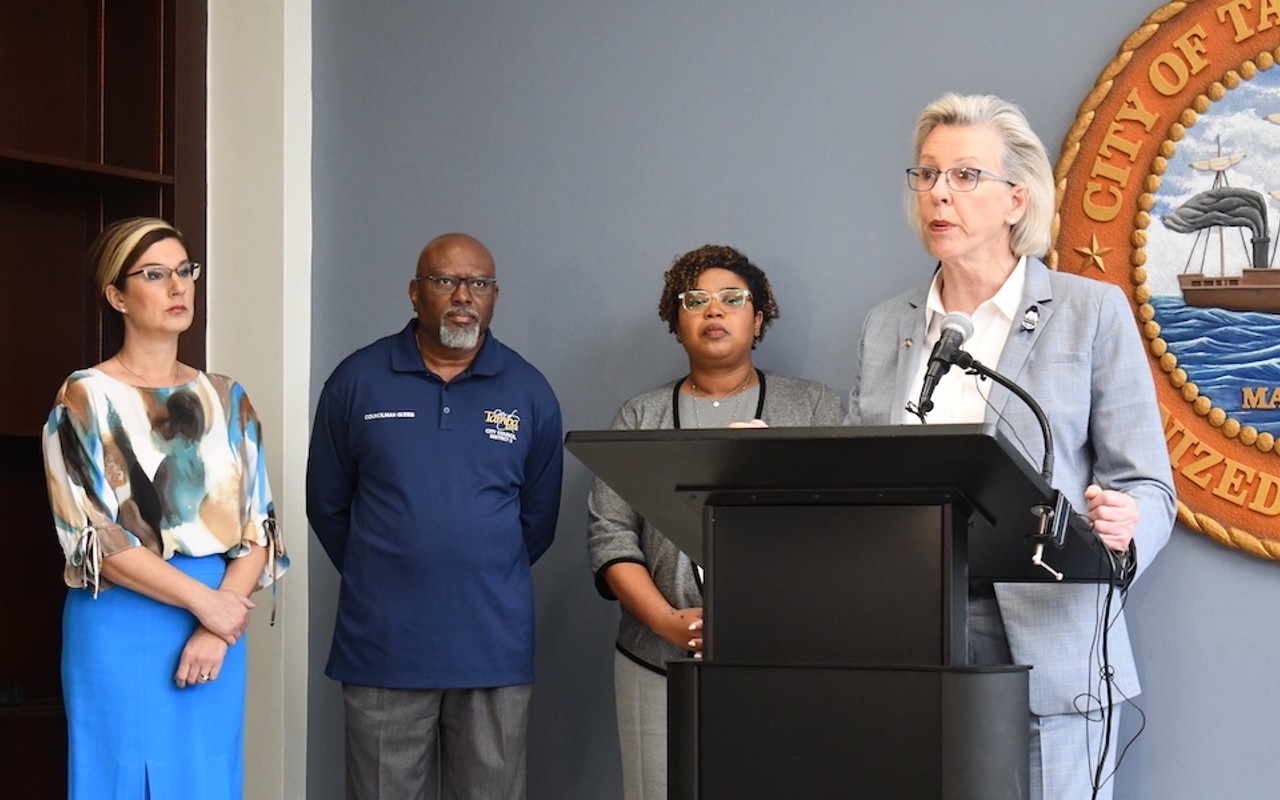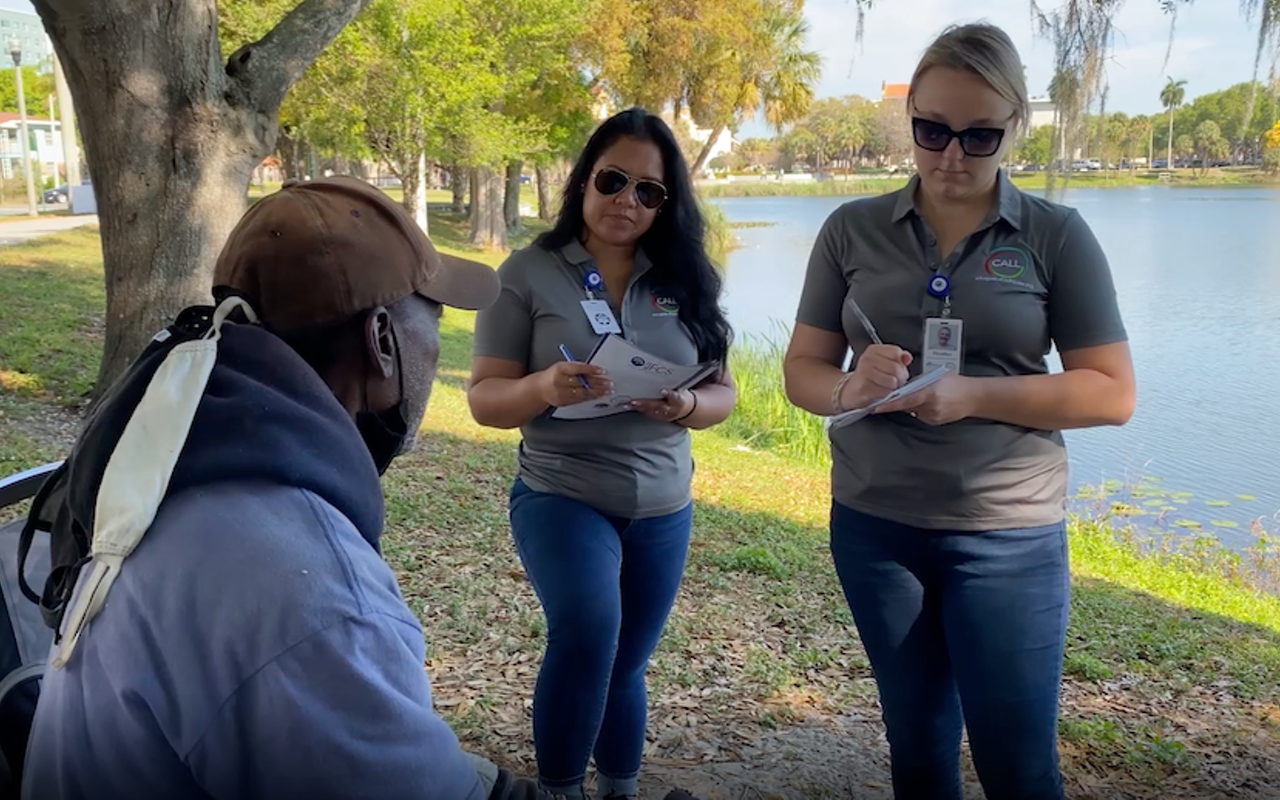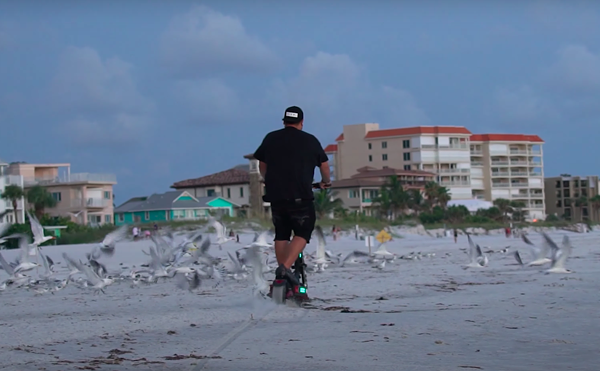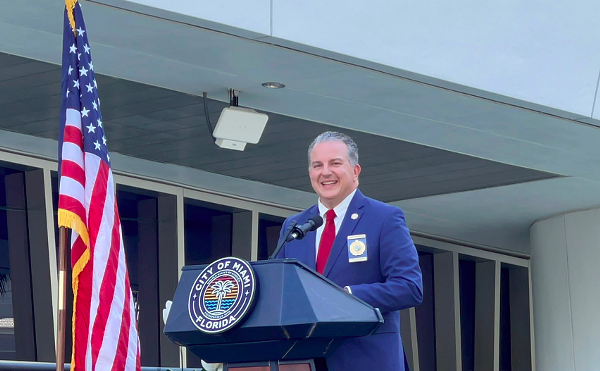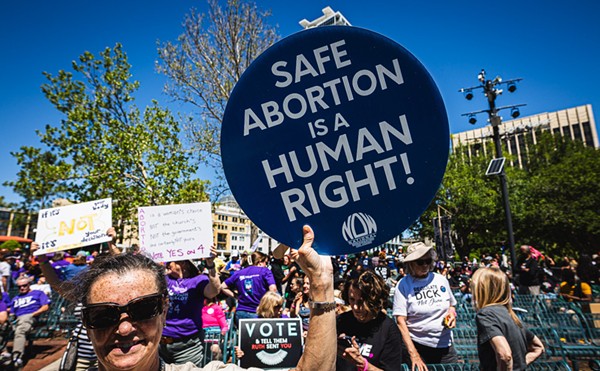
During a forum on homelessness on May 24, Tampa city officials used stereotyping language to describe the local homeless community, despite experts onstage attempting to correct it.
Tampa's Communications Director Adam Smith started the forum off with a joke.
"You might have seen all those people on the street across the street," Smith said, referring to those waiting in line for the Phoebe Bridgers concert at the Cuban Club. "I thought they were homeless at first but they're here for the concert across the street. So I'm glad you got parking."
The crowd chuckled in response.
Misguided assumptions about homeless people went on from there, even though forum panelists from the county and local nonprofits tried to correct some of the city's views on local homelessness.
During discussion of whether or not to give a struggling person on the street money when they ask for it, Antoinette D. Hayes-Triplett, CEO of the Tampa Hillsborough Homeless Initiative, suggested that connecting people to services is more important, and said that giving money to a person on the street could sometimes "prolong a person's homelessness."
Smith responded by asking, "It's just gonna go to booze and drugs?"
"Not necessarily, but maybe sometimes," Hayes-Triplett said.
"Is that a consensus answer?" Smith asked the others at the forum during Hayes-Triplett's response as a follow-up question.
Smith told Creative Loafing Tampa Bay that this follow-up question was in regards to giving money to homeless people in general, not the "booze and drugs" question.
A minute-and-a-half later, Felicia Crosby-Rucker, Hillsborough County's director of homeless and community services, tried to point out the flaw in stereotyping homeless people as drunk addicts.
"The face of homelessness has changed," she said. "It's not the old drunk person with the rough beard, and old dirty clothes and stuff. The face of homelessness looks like this [pointing at herself] it looks like anybody up here, the person in the cubicle next to you."
Later on in the forum, when discussing why Catholic Charities chose East Tampa for its "Tampa Hope" Homeless Shelter location, Smith suggested it was put there because homeless people have problems with alcohol, and was again corrected.
"Isn't part of the reason Tampa Hope wound up where it is is because you don't want to have it in an area where there are a lot of liquor stores?" Smith asked.
Maggie Rogers, executive director for Catholic Charities, who formed the homeless shelter with the help of $750,000 from the City of Tampa, cut Smith off to say, "That is actually the location where the majority of the population that is at Tampa Hope come from."
Tampa Hope is located at 3704 E 3rd Ave. in East Tampa, a historically Black area of the city. Activists have complained for years that the city ignores East Tampa and its community, leading to impoverishment and many residents in the area struggling to make ends meet.
When asked for a statement, Smith said, "I may have said some clumsy things during the hour and a half forum, but I hope that's not your main takeaway."
The forum did in fact cover several important subjects about homelessness. Rising rent prices and cost of living pricing everyday people into homelessness was mentioned several times during the discussion, and those interested in watching the whole thing can do so on the city's Facebook page.
During the meeting, both Castor and her controversial police chief pick Mary O'Connor referenced addiction and mental illness as being prevalent among the homeless community.
When referring to Tampa Hope, Castor said, "it's a location that individuals can go and they can receive the services that they need, which we all know a lot of times deals with mental illness and addiction."
O'Connor said, "I think it's no secret that a lot of our homeless are suffering from mental health issues and a lot of our society is suffering from mental health issues, which is why, you know, law enforcement is being tasked now more than ever to respond to a mental health crisis."
Tampa police chose to implement a police officer-led behavioral health response unit, despite community and expert outcry to create a program that has mental health experts respond to such crises, not police. St. Petersburg has implemented such a program, to great success. But Tampa has so far avoided such a model.
"An individual’s mental illness may lead to cognitive and behavioral problems that make it difficult to earn a stable income or to carry out daily activities in ways that encourage stable housing," the Brain and Behavior Research Foundation found. "Several studies have shown, however, that individuals with mental illnesses often find themselves homeless primarily as the result of poverty and a lack of low-income housing."
When a person hits the streets, the symptoms often get worse.
"On the streets, mental health problems get exacerbated, and addiction often starts or is amplified when someone finds themselves in a desperate position such as homelessness," the foundation wrote.
The foundation says that because of poverty and lack of resources, a homeless person may turn to drugs and alcohol, but it is not the overall case of homeless people in general.
Several of the forum's experts pointed out the desperate need for affordable housing, including Mayor Castor and Smith. They talked about the seriousness of the homeless situation in Tampa. But still, the city continued to use outdated stereotypes to describe local homeless people in general.
The city did not respond to questions about Castor and O'Connors references to mental illness and addiction in the homeless community.

